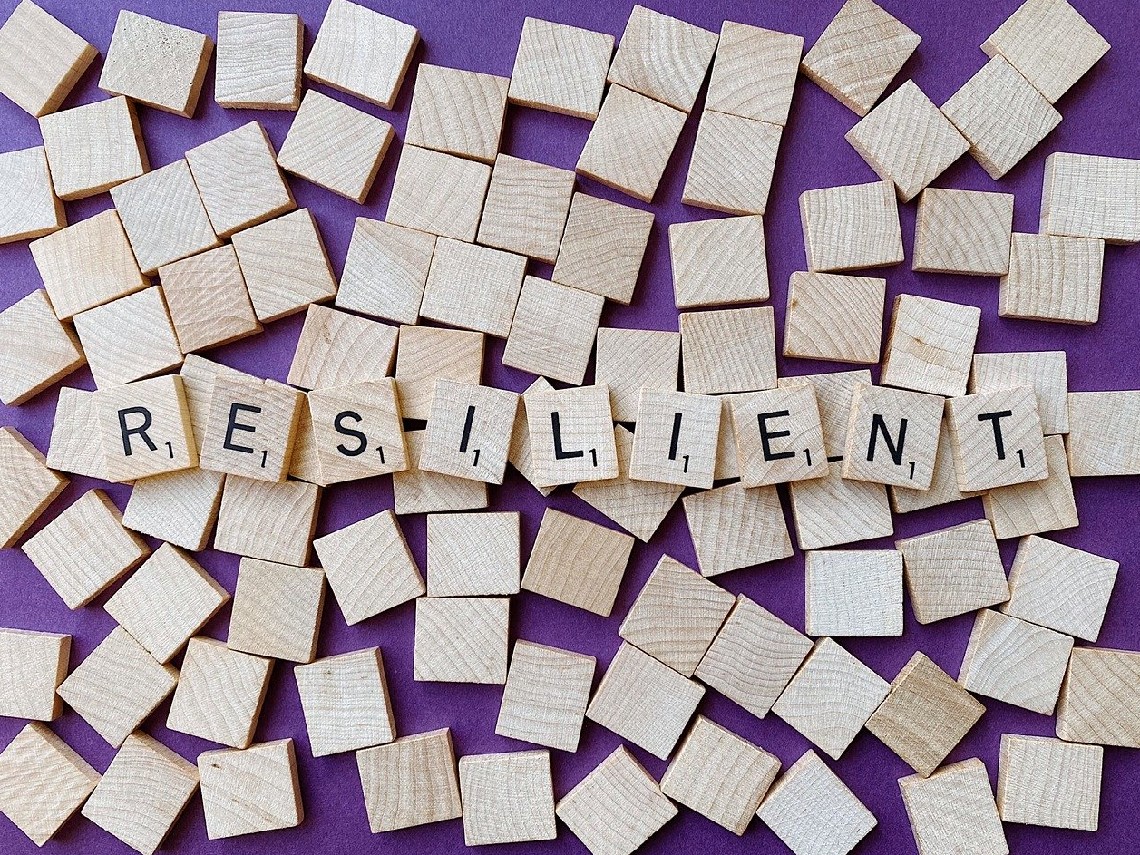
Many people shy away from being uncomfortable and respond to the challenge of the new and possibly difficult by becoming fearful and stressed. You might think that’s quite a sensible and normal response, but in fact it’s the opposite. Many of us systematically underestimate our resilience in challenging situations.
Our anticipatory fears about being assertive, speaking in public, and networking are a completely unhelpful, inaccurate guide to what it will be like when we actually take the leap and stretch outside our comfort zone. Inaccurate beliefs limit us emotionally and prevent us from realising our full potential.
People are far more resilient than they imagine, but they may need help to find their resilience. If you are an HR professional or an operations manager leading a team, you’ll know how important continuing development is. Here are some things to think about which you can apply in your own learning or that of your team.
You’ve braver than you know
Look back at all the things you’ve already achieved that took serious nerve. For some of us, it was going off to college and living alone for the first time. For others, it was switching jobs or careers, or getting married. For me, it was learning to stand up and speak in public. I suffered from crippling shyness well into my 20s. But nobody would ever believe that now ....... The more you do something difficult, the easier it gets and the braver you feel.
We all have our own experiences that required some level of bravery, and we can draw on them when confronting the next situation outside our comfort zones.
You’re surprisingly flexible
During your life, you’ve learned to adapt and adjust your behaviour to meet the requirements of a given situation. Think about the wide range of people in your social circle who you already interact with. Do you speak with your boss the same way you do with your colleagues? Do your interactions with your in-laws take the same form as those with your friends from university? Probably not. You’ve adapted and adjusted your behaviour before; you can do it again.
It’s probably not that bad
Fear gets in the way of clear thinking. We worry about the worst possible outcome, that we’ll humiliate ourselves onstage during a public speaking event, or that the person that we’re delivering negative feedback to will hate us forever. There’s always a slight chance that the worst will happen, but the reality is a bit more nuanced than that. You might be anxious about speaking in front of a crowd, but research suggests that some degree of anxiety is quite helpful for effective performance. Additionally, though you could embarrass yourself onstage — by saying the wrong thing, for example — it’s far more likely that you’ll do just fine if you’ve prepared, or at least reality will be far less terrifying than what you imagined. (Most people don’t notice anyway).
You have resources (internal and external) available to you
When you face a tough situation, you often feel vulnerable, perhaps even hopeless. But you’re not alone in the situation. You often have quite several resources to use — mentors, colleagues, or friends to go to for guidance, or steps you can take when preparing. You can even make slight adjustments to the event itself to make it more manageable. For example, one client I know who feels awkward making small talk in social settings sometimes brings a selfie stick with her as an icebreaker. What’s great about this prop is that does more than generate conversation. When a photo is taken, she can easily exchange contact information so she can send a photo later — and, if she’s interested, make a future connection with the person involved.
In situations outside our comfort zones, we can feel weak or powerless. But we can leverage the capabilities that we already have inside ourselves to march into unfamiliar situations with confidence. Don’t underestimate your resilience. Give it a go, and chances are, you’ll probably end up surprising yourself.
If you’re an employer with HR queries and problems, get in touch!
Sign up for our free resources and free weekly tip - subscribe here.
Phone 0345 644 8955
LinkedIn Russell HR Consulting
DISCLAIMER
Although every effort has been made to ensure the accuracy of the information contained in this blog, nothing herein should be construed as giving advice and no responsibility will be taken for inaccuracies or errors.
Copyright © 2020 all rights reserved. You may copy or distribute this blog as long as this copyright notice and full information about contacting the author are attached. The author is Kate Russell of Russell HR Consulting Ltd.
Latest blog posts
- Is There a Santa Clause?
06 / 12 / 2023
- Lend Us a Hand!
22 / 11 / 2023
- What Happens When There is a Clash in Protected Characteristics?
17 / 10 / 2023
- Encouraging a Healthy Workforce 2
21 / 09 / 2023
- Encouraging a Healthy Workforce
23 / 08 / 2023
- What a Disaster - (But We Have a Cunning Plan!)
20 / 07 / 2023
- It’s Time We Stiffened the Sinews
14 / 06 / 2023
- Why Is It So Important to Develop Emotional Resilience?
16 / 05 / 2023
- When is a discretionary bonus not discretionary?
20 / 04 / 2023
- Recovering Training Costs 15 / 03 / 2023
